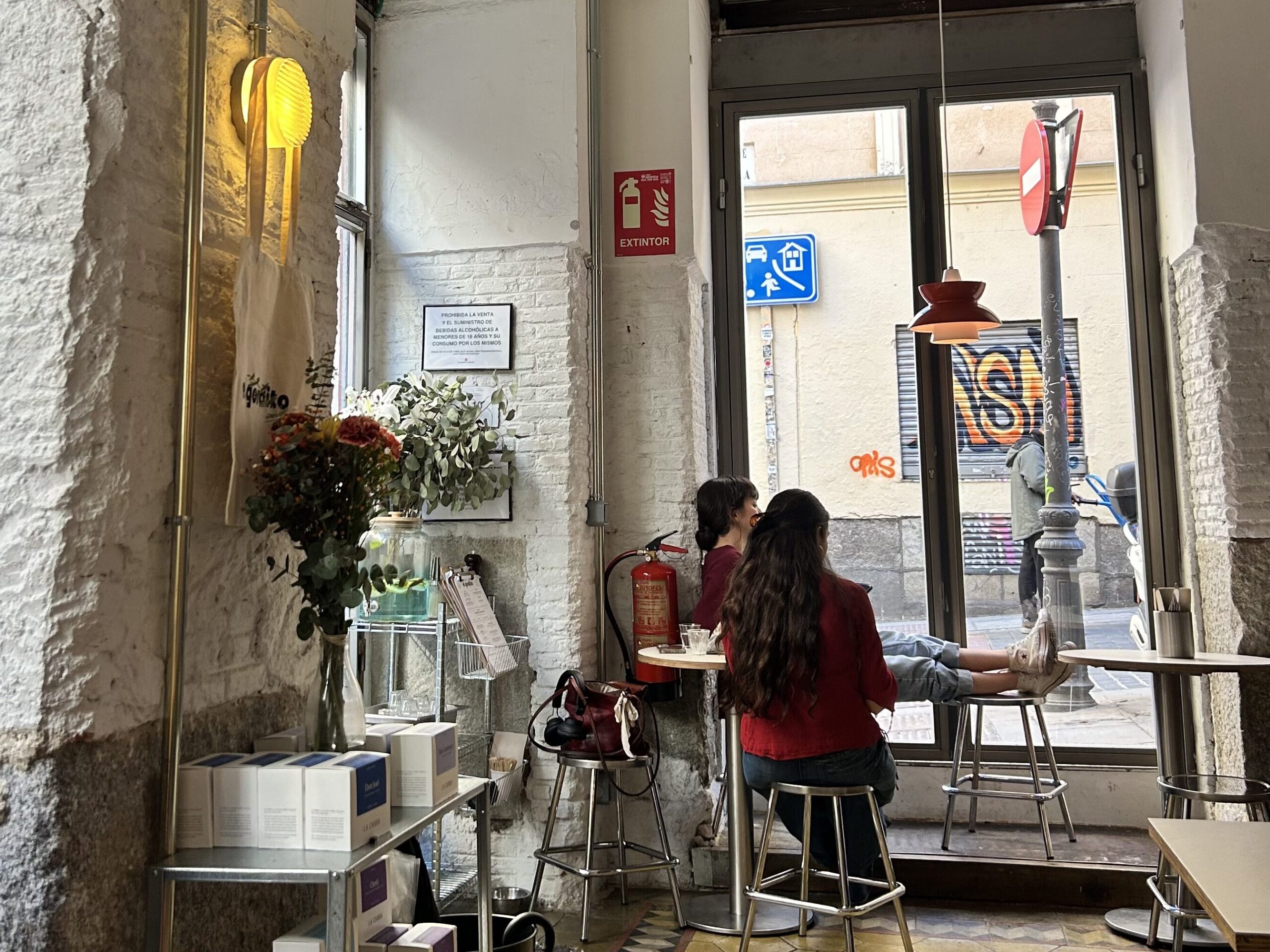
In January, a week after beginning his semester abroad in Madrid, NYU student Elliot
Guiness headed to his local cafe, laptop in hand, hoping to get some homework done. After
ordering his latte he asked the barista in proficient Spanish “Tienes wifi?” She politely replied in
English, “We do not give out the wifi. You are not allowed to use laptop’s at this cafe”.
Guinness has learned to double check whether a cafe allows the use of laptops before he
begins each study session. “It feels almost rude to pull out my laptop and do work when
everyone is sitting around and relaxing,” he said.
Unlike the U.S. “Europe is not a “coffee-to-go” culture. Europeans consider their coffee
consumption to be more of “a sit-down experience,” notes the Culinary Travel Guide . Spain’s
coffee shops historically follow this unspoken rule. The sidewalks are filled with cafeterias
(traditional Spanish coffee shops) where everyone from mothers and children to business people
in professional wear enjoy their afternoon coffee.
However, post-pandemic a number of work-friendly coffee shops are popping up.
According to guidepost, more cafes are opening in Madrid that are set up with work areas where
you can use your laptop as well as wifi.
Mora Cafe in Malasaña, run by an American from Kansas City offers wifi for customers
with laptops. “Traditional Spanish bars are places people go to talk and have a coffee,” said
Mora cafe owner Alex Stocker. “But a lot of the young people in Spain who have seen coffee
shops being used as workspaces elsewhere and have created these same study havens here in
Madrid.” Stocker opened Mora cafe in Malasana with the intention of creating a space that
welcomes both locals and foreigners.
Another coffee shop, Acid Cafe in Chueca, combines the original Spanish social area
with the modern concept of a workplace by only allowing laptops on weekends. Madrid resident
and barista at Acid cafe, George, says, “Cafes in Spain come from bar culture, which is why they
should remain as a place of socialization for Spaniards.”
Twenty-five year old Julia Basante, who grew up in Madrid, accompanying her parents to
traditional cafes, now looks for places that allow wifi. “Just because I use my laptop does not
mean other people can’t still enjoy the atmosphere of the cafe.” Julia thinks less emphasis should
be placed on how people spend their time at coffee shops. While sipping her specialty pistachio
latte at Noviciado Coffeeshop she said, “The Spanish are friendly and welcoming people. So
why not be welcoming to new business ideas?”
